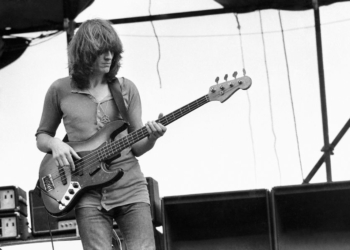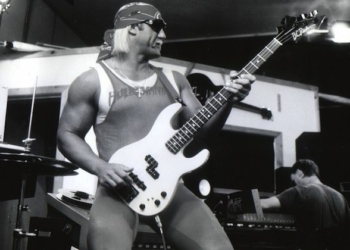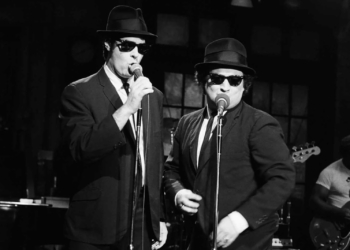When it comes to basketball, Wayman Tisdale’s story is one for the books. Over 12 NBA seasons, NBA player Wayman Tisdale played an impressive 840 games, averaging over 15 points and six rebounds per game. During his basketball career, he made his mark with teams like the Indiana Pacers, Sacramento Kings, and Phoenix Suns. But there was always more to Tisdale than basketball.
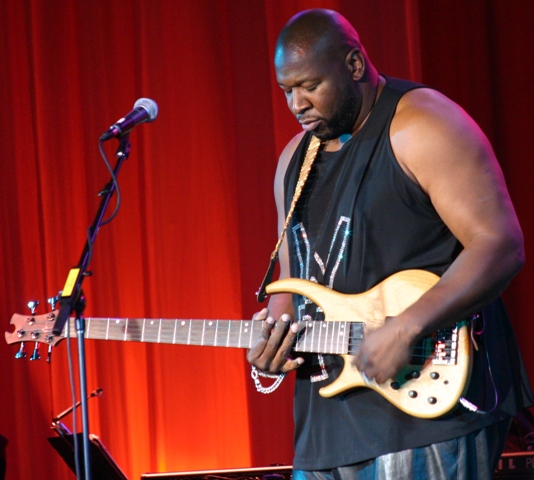
Before his pro days, Tisdale was a living legend at the University of Oklahoma. His jersey number? Retired. He became the first college player to be named a first-team All-American as a freshman, sophomore, and junior. It’s no wonder the USBWA named their annual award for outstanding freshmen after him. In 2009, he was inducted into the National Collegiate Basketball Hall of Fame.
And yet, basketball wasn’t his first love. That honor went to music—and the bass guitar.
From Church to the NBA: The Early Years of Wayman Tisdale
Tisdale was born in 1964 in Fort Worth, Texas, and grew up in Tulsa, Oklahoma, where music was everywhere. His father was a preacher, and the church is where young Wayman got his start. He picked up his first guitar there, but in his excitement, broke most of the strings practicing. With just two strings left, he started playing bass lines—over and over.
There was another twist: Tisdale was left-handed. Without a lefty guitar—or even new strings—he flipped the guitar upside down and taught himself to play. Inspired by the jazz and funk sounds of the ’70s, he developed his unique style long before anyone thought he’d ever set foot on an NBA court.
As his love for music grew, so did his size and athletic talent. By high school, he was a basketball standout, earning a spot at the University of Oklahoma, where he absolutely dominated. Oh, and did I mention the Olympics? In 1984, Tisdale played alongside Michael Jordan, snagged a gold medal, and led the tournament in rebounds. It was no surprise that in 1985, the Indiana Pacers picked him second overall in the NBA Draft.
The NBA Player Who Took His Bass Guitar Everywhere
Even with other pro NBA players, Tisdale stood out—and not just for his on-court skills. While teammates lugged around gym bags and basketballs, Tisdale carried his bass guitar. That bass went everywhere with him. On road trips, he hit up jazz clubs and jammed with musicians.
One of those musicians was Marcus Miller. Miller quickly saw Tisdale’s passion wasn’t just a hobby. “I noticed this guy was serious,” Miller said.
That seriousness paid off. A demo tape made its way to Motown, and Tisdale got signed almost immediately. His first album, Power Forward, dropped in 1995 and climbed to No. 4 on the Billboard jazz chart. Suddenly, people realized he wasn’t just a basketball player dabbling in music—he was legit.
“The bass guitar isn’t usually a solo instrument,” saxophonist Dave Koz once said. “But Wayman made it sing—his melodies and emotion were incredible. Music was his soul.”
Tisdale summed it up best himself: “If you like me on the basketball court, wait till you hear me play jazz.”
By 2001, Tisdale reached new heights with Face to Face, his fourth album. It hit No. 1 on Billboard’s contemporary jazz chart, blending smooth jazz with R&B grooves. Retired from basketball by then, Tisdale was thriving in his second act as a musician.
Wayman Tisdale’s Battle with Cancer: Resilience Through Music
But life threw him a curveball.
In 2007, Tisdale fell at home and broke his leg. That injury led to a devastating discovery: bone cancer in his knee. The first round of chemo didn’t go well. Doctors struggled to calculate the right dosage for someone his size, and the experience was brutal. For the first time, music no longer brought him joy.
In 2008, he made the difficult decision to amputate part of his right leg. Remarkably, he embraced the change, calling it a relief—freedom from chemo and a chance to start fresh. That same year, he released Rebound, an album inspired by his fight with cancer.
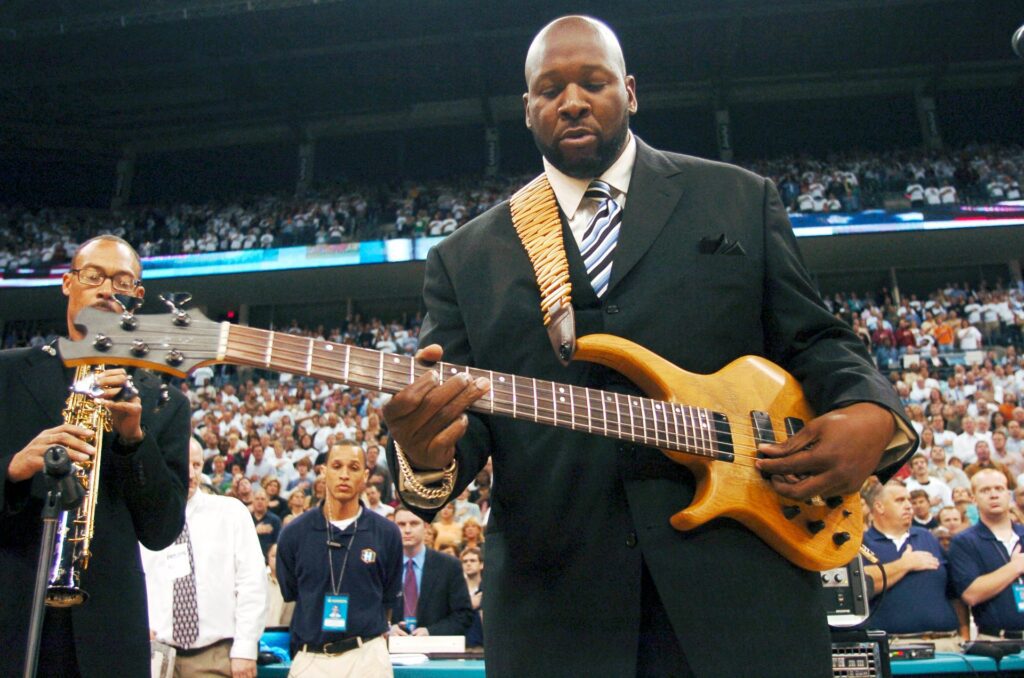
“I’ve seen a lot of performers,” Koz said, “but no one gave as much as Wayman did that night. The audience knew it was something they’d never see again.”
A month later, on May 15, Tisdale passed away from complications following radiation treatments. He was just 44 years old.
Wayman Tisdale left behind an incredible legacy—not just as an NBA player or musician, but as a symbol of resilience and passion. His family continues that legacy through the Wayman L. Tisdale Foundation, which supports people in need of prosthetic care.
Wayman’s story proves you can have more than one great love in life. And if you follow your passions with heart and determination, you can leave a legacy that inspires others long after you’re gone.
